
The history of the Falkland Islands goes back at least five hundred years, with active exploration and colonisation only taking place in the 18th century. Nonetheless, the Falkland Islands have been a matter of controversy, as they have been claimed by the French, British, Spaniards and Argentines at various points.

ARAGeneral Belgrano (C-4) was an Argentine Navy light cruiser in service from 1951 until 1982. Originally commissioned by the U.S. Navy as USS Phoenix, she saw action in the Pacific theatre of World War II before being sold to Argentina. The vessel was the second to have been named after the Argentine founding father Manuel Belgrano (1770–1820). The first vessel was a 7,069-ton armoured cruiser completed in 1896.

The Battle of the Falkland Islands was a First World War naval action between the British Royal Navy and Imperial German Navy on 8 December 1914 in the South Atlantic. The British, after their defeat at the Battle of Coronel on 1 November, sent a large force to track down and destroy the German cruiser squadron. The battle is commemorated every year on 8 December in the Falkland Islands as a public holiday.
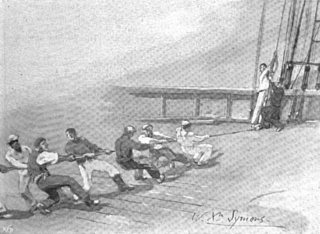
A sea shanty, chantey, or chanty is a genre of traditional folk song that was once commonly sung as a work song to accompany rhythmical labor aboard large merchant sailing vessels. The term shanty most accurately refers to a specific style of work song belonging to this historical repertoire. However, in recent, popular usage, the scope of its definition is sometimes expanded to admit a wider range of repertoire and characteristics, or to refer to a "maritime work song" in general.

James Weddell was a British sailor, navigator and seal hunter who in February 1823 sailed to latitude of 74° 15′ S—a record 7.69 degrees or 532 statute miles south of the Antarctic Circle—and into a region of the Southern Ocean that later became known as the Weddell Sea.
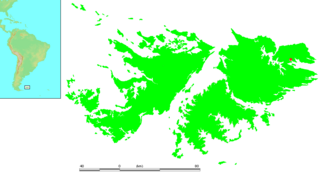
Port Louis is a settlement on northeastern East Falkland. It was established by Louis de Bougainville on 5 April 1764 as the first French settlement on the islands, but was then transferred to Spain in 1767 and renamed Puerto Soledad.
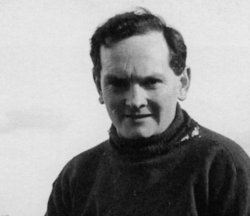
Donald Charles Alfred Crowhurst was a British businessman and amateur sailor who disappeared while competing in the Sunday Times Golden Globe Race, a single-handed, round-the-world yacht race held in 1968–69. Soon after starting the race his boat, the Teignmouth Electron, began taking on water. Crowhurst secretly abandoned the race while reporting false positions in an attempt to appear to complete a circumnavigation without actually doing so. His ship's logbooks, found after his disappearance, suggest that the stress he was under and associated psychological deterioration may have led to his suicide.
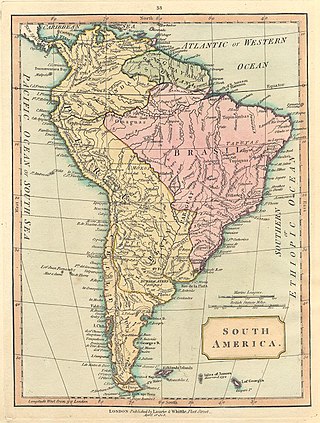
The Aurora Islands was a group of three phantom islands first reported in 1762 by the Spanish merchant ship Aurora while sailing from Lima to Cadiz. The Aurora's officers reported sighting them again in 1774. The Spanish ship San Miguel fixed their location at 52°37'S, 47°49'W. On 20 February 1794, they were sighted again by a Spanish survey ship, the corvette Atrevida, which as part of the Alejandro Malaspina circumnavigation had been sent to confirm them. Their reported location was approximately halfway between the Falkland Islands and South Georgia at 53°S48°W. The latitude is considered perfect; the longitude was based on the meridian of the astronomical observatory, San Fernando, Cádiz. The islands were last reportedly sighted in 1856, but continued to appear on maps of the South Atlantic until the 1870s.

Brown on Resolution is a 1929 nautical novel written by C. S. Forester, set during World War I. The hero of the novel, Leading Seaman Albert Brown, is the sole able-bodied survivor of a sunken Royal Navy warship, who single-handedly delays its attacker, a German cruiser, long enough to ensure its destruction by its pursuers.

Jonathan Mark Hamilton Priaulx Raban was an award-winning British travel writer, playwright, critic, and novelist.
"Sermon on the Mound" is the name given by the Scottish press to an address made by British prime minister Margaret Thatcher to the General Assembly of the Church of Scotland on Saturday, 21 May 1988. This speech, which laid out the relationship between her religious and political thinking, proved highly controversial.

The Falklands Play is a dramatic account of the political events leading up to, and including, the 1982 Falklands War. The play was written by Ian Curteis, an experienced writer who had started his television career in drama, but had increasingly come to specialise in dramatic reconstructions of history. It was originally commissioned by the BBC in 1983, for production and broadcast in 1986, but was subsequently shelved by Controller of BBC One Michael Grade due to its pro-Margaret Thatcher stance and alleged jingoistic tone. This prompted a press furore over media bias and censorship. The play was not staged until 2002, when it was broadcast in separate adaptations on BBC Television and Radio. It was aired again on BBC4, 1 December 2020, over 18 years after it was last transmitted.
The cultural impact of the Falklands War spanned several media in both Britain and Argentina. A number of films and television productions emerged from the conflict. The first Argentine film about the war was Los chicos de la guerra in 1984. The BBC drama Tumbledown (1988) tells the story of a British officer paralysed from a bullet wound. The computer game Harrier Attack (1983) and the naval strategy game Strike Fleet (1987) are two examples of Falklands-related games. A number of fictional works were set during the Falklands War, including in Stephen King's novella The Langoliers (1990), in which the character Nick Hopewell is a Falklands veteran. The war provided a wealth of material for non-fiction writers; in the United Kingdom (UK) an important account became Max Hastings and Simon Jenkins' The Battle for the Falklands.
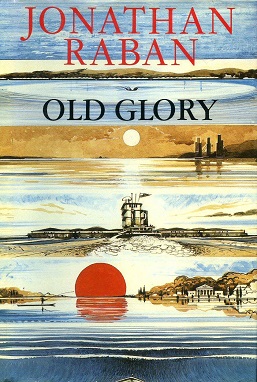
Old Glory is a travel book by Jonathan Raban. It is the winner of The Royal Society of Literature's Heinemann Award and the Thomas Cook Travel Book Award.

A stone run is a rock landform resulting from the erosion of particular rock varieties caused by freezing-thawing cycles in periglacial conditions during the last Ice Age.
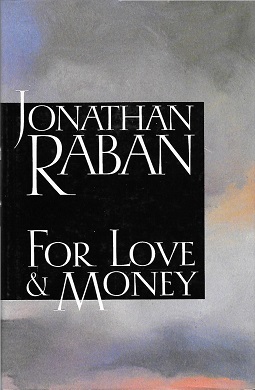
For Love & Money: Writing, Reading, Travelling, 1968 - 1987 is a book by Jonathan Raban. As the author states in the opening chapter, it is partly a collection of case-histories of his writing career over twenty years as a professional writer.
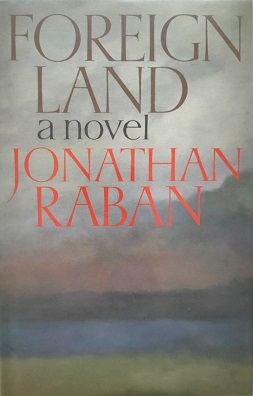
Foreign Land (1985) is the first novel of the author Jonathan Raban.

Gosfield is a village in the Braintree district of Essex, England. It is located around two miles west of the town of Halstead.

The Cater Street Hangman is a crime novel by Anne Perry. It is the first in a series which features the husband-and-wife team of Thomas and Charlotte Pitt.

The German commerce raiders of World War I were surface vessels used by the Imperial German Navy for its Handelskrieg, a campaign against Allied seaborne trade. The ships comprised warships, principally cruisers, stationed in the German colonial empire before the war began, express liners commissioned as auxiliary cruisers and later, freighters outfitted as merchant raiders. These vessels had a number of successes and had a significant effect on Allied naval strategy, particularly in the early months of the war.


















